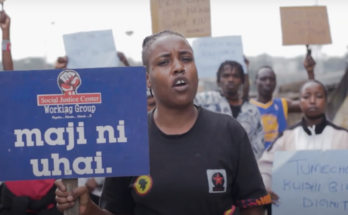Kenya is suffering from a financial crisis, and the government has invited the IMF back. But those who survived the IMF and World Bank Structural Adjustment Programmes of the ’80s and ’90s fear the return of privatisation, free markets and deregulation. Now, the government is to criminalizing dissent.
What’s the concern?
These loans are often presented as the solution to economic woes. Specifically, they’re seen as a measure that will instil discipline into a country’s economy by increasing revenue and decreasing expenditure. However, some argue that the real purpose of these loans is to bring about fundamental policy changes at the national level. These changes reflect the neoliberal ethos of our time – complete with privatisation, free markets and deregulation.
In the past, the Programmes came with stringent conditions attached, causing civil service layoffs and subsidy removal for essential services. This included health and education, leading to increased levels of hardship and precarity, especially among lower-income groups. African countries experienced “a lost development decade” as belt-tightening measures stalled development programmes and stunted economic opportunities.
Why has this happened?
IMF loans for infrastructure projects also benefit Western corporations. Private companies hire experts to secure government contracts for infrastructure projects funded by international financial institutions. Companies in rich countries often hire people to the bidding on their behalf. In his international “word-of-mouth bestseller”, Confessions of an Economic Hit Man, John Perkins explains that when he worked for an international consulting firm, his job was to “funnel money from the World Bank, the US Agency for International Development and other foreign aid organisations into the coffers of huge corporations and the pockets of a few wealthy families who control the planet’s resources”.



